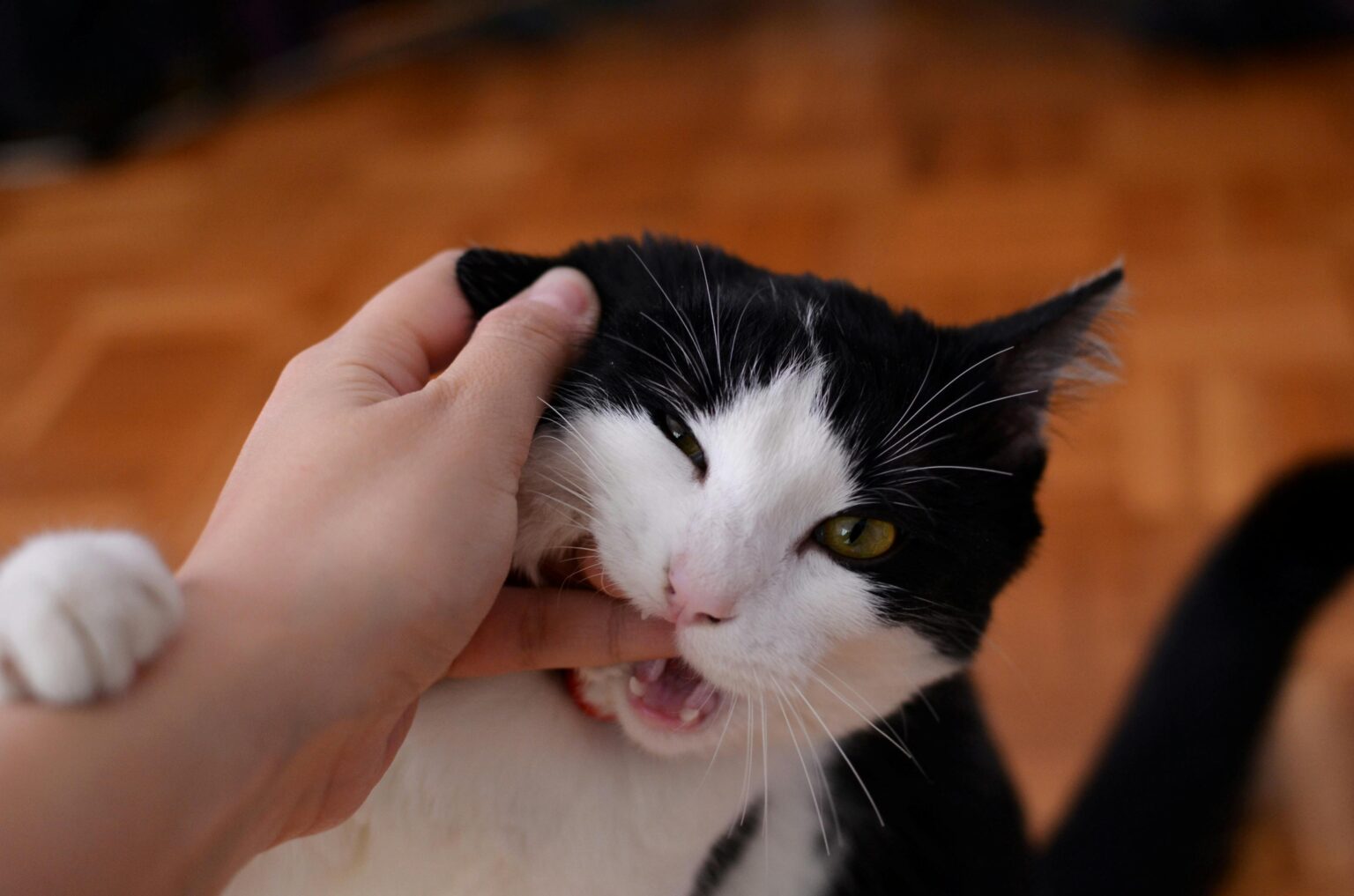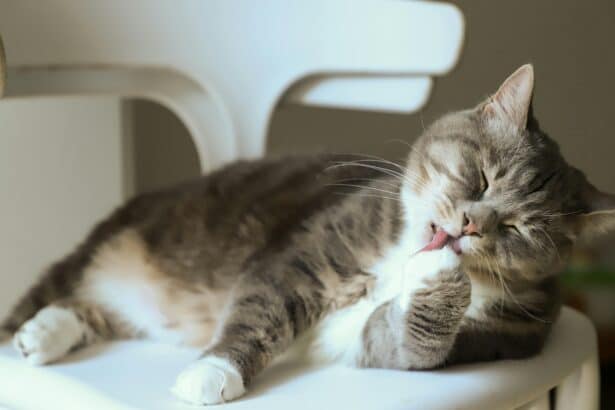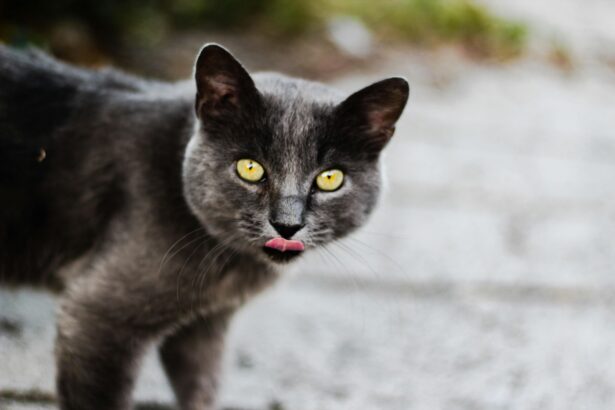Feline companions offer an interesting dynamic for their owners thanks to their mysterious behaviors. However, certain behaviors can be disturbing for owners, such as when cats bite their hands. Why does your cat do this and what can you do to respond appropriately? In the following article, we’ll explore this topic in depth.
Potential reasons why your cat might bite your hand
To identify the factors that cause this behavior, we first need to understand that cats have their own language and means of communication. There are many reasons why a cat might bite its owner’s hand. Let’s explore some of the most common explanations.
Playing behavior
Especially when they’re still young, cats love to play and use their bodies to express this desire. They are natural hunters, so even in a domestic context, they can express their instincts by biting and clawing. Don’t worry, it can simply be a form of play for them. This gives them an idea of how to hunt, how to interact, and how to maneuver their bodies with agility.
Expression of boredom
On the other hand, boredom can also be a trigger for this biting behavior. If your cat doesn’t get enough mental or physical stimulation, boredom can trigger a variety of behaviors, including biting. That’s why it’s crucially important to provide plenty of mentally stimulating activities and challenges every day. Many cognitive and physical resources are available to keep your cat active and happy.
Malaise signal
What’s more, cats are known for their ability to hide pain and discomfort. Sometimes they may bite to signal their discomfort. This can be a sign of physical pain or stress. A sudden, inexplicable change in your cat’s behavior should always prompt you to consult a veterinarian. Paying attention to your cat’s signals and reacting accordingly is crucial to its well-being.
Understanding feline communication through bites
Biting is a form of feline communication. Cats use their teeth to express a variety of feelings in different ways. A gentle bite is not the same as an aggressive bite.
Expressions of affection
In some cases, cat bites are a way of expressing affection. These bites, often called “love bites”, are generally gentle and painless. Your cat may nibble your hand or fingers after a pleasant petting session. It’s a way for them to prolong the interaction or express their satisfaction.
Expression of dominance
Cats have a complex social structure and sometimes try to establish their own boundaries. Cats may bite to express their dominance. Unlike love bites, these dominance bites are generally harder and may be accompanied by other signals, such as dilated eyes or an arched back.
Expression of fear or stress
Cats can also bite if they feel threatened or stressed. This is where the importance of understanding your cat’s body language comes in. If your cat bites when you try to handle or move it, this may indicate that it feels uncomfortable. To find out more about how to recognize signs of stress in cats, read our article.
How to react when your cat bites your hand
Redirecting behavior
If your cat has a tendency to bite, whether for play or other reasons, it’s time to redirect this behavior. Use cat toys to play with him, so that his teeth and claws aren’t directed at your hand. You can also use rewards to reinforce the desired behavior.
Soothing an anxious cat
If stress or fear triggers the bite, the strategy is to resolve the underlying problem. Find out what causes stress, whether it’s loud noises, other animals, new people or environments. Then try to reduce these stress factors. Make sure your cat has safe places to retreat to and hide. A calm, safe environment can do wonders to reduce your cat’s stress.
When to consult a professional
If, despite your best efforts, your cat’s biting persists or intensifies, or if you can’t identify the cause of this behavior, then it’s time to consult an animal behavior professional. Expert advice can be very helpful in understanding how they feel and how to modify their behavior. If your cat’s bite causes injury, you should seek professional help.
Preventing future bites – Tips and strategies
Suitable toys for cats
Taking the time to choose the right toys for your cat can make all the difference. Some toys are designed to encourage a cat’s predatory instinct and may offer a suitable alternative to biting your hand. Be sure to introduce a variety of toys to keep your cat intrigued and active.
Sufficient playing time
A cat needs daily physical and mental exercise to stay happy and healthy. Make sure your cat has enough playtime every day. Interacting with them during play can also help strengthen your bond.
Understanding and respecting your cat’s limits
Cats are independent creatures with their own preferences and limits. It is essential to respect these limits. If your cat seems uncomfortable with certain forms of touch or handling, respect this and adjust your behavior accordingly. A cat that feels respected is more likely to develop a relationship of trust with you.
You can learn more about cat behavior and discover how to establish a healthy relationship with your cat by consulting our practical guide to adopting and raising a cat.
Creating a harmonious cohabitation with your cat
Your cat’s bite is not necessarily a sign of aggression. By understanding the reasons why your cat may bite, whether out of play, boredom, pain or stress, you can adapt your reactions and actions to manage this behavior. Every cat is unique, and understanding their behavior takes time, observation and a lot of patience. With perseverance and empathy, you can work with your cat to create a loving, respectful relationship.







